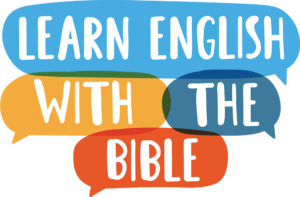Advanced Lesson 1 -
The Truth Will Set You Free
Grammar Exercise

What is a noun clause? This passage contains many of them. Let’s take a closer look! This is the fifth part of Advanced Lesson 1, or you can do it as an individual grammar lesson.
Noun Clauses
A noun clause contains a subject and a verb and takes the place of a noun. A noun clause cannot stand alone as a sentence; it must be part of a sentence. Noun clauses often include a wh word, such as what, when, who, where, and why. Words such as if, how, and that are also commonly used in noun clauses.
Here is a sentence from the passage that contains two noun clauses. The noun clauses are in bold:
1. I am telling you what my Father has shown me, just as you are doing what your father has taught you. (John 8:38 CEV)
In sentence 1, each of the two noun clauses can be replaced with a noun or a pronoun.
(1a) I am telling you that.
that = what my Father has shown me
(1b) You are doing it.
it = what your father has taught you
More Examples
Here is another sentence from the passage that contains a noun clause:
2. How can you say we will be set free? (John 8:33 CEV)
This one is tricky. It looks like the words in orange can stand alone as a sentence. It is missing the word that in front of the noun clause, and it is okay. English often allows that in a noun clause to be omitted. Because you can use the word that with this sentence, the phrase “that we will be set free” is not a complete sentence and is called a noun clause.
Sentence 2 is the same as sentence 3.
2. How can you say that we will be set free? (John 8:33 CEV)
Find More Noun Clauses in the Passage
Can you identify other sentences in the passage that contain noun clauses? There are many. If you just look at the passage used for the speaking section (John 8:42–44 (CEV), you will find three sentences containing noun clauses. Here is the link to the speaking text. You will find the answers on page 2.
More Examples of Noun Clauses
Here are additional examples of sentences containing noun clauses. Here’s an easy test: if you can substitute a pronoun for the clause, you know you have a noun clause!
- Do you know where I can find a fig tree? (Pronoun test: Do you know it?)
- How can you tell whether someone is a Christian? (Pronoun test: How can you tell that?)
- Do you remember how you found the Learn English with the Bible website? (Pronoun test: Do you remember it?)
- I don’t know when I can complete this section. (Pronoun test: I don’t know it.)
- What I find interesting about the Bible is that it contains all the subject matters that are relevant to our daily life. (Pronoun test: It is…, and …is this.)
- I was wondering if you could help me understand noun clauses. (Pronoun test: I was wondering this.)
You can see that a noun clause adds extra information and meaning to a sentence.
Your Turn to Write!
Now, it’s time for you to write some sentences containing noun clauses! Make the sentences relevant to your own life. Here is a worksheet on noun clauses from EnglishPractice.com. Your answers will be unique and different from the sample answers given in the pdf file.
Let’s do some more writing. Take your time – be sure to do the writing exercises, even if it seems easier to skip them! Even if you don’t write much in English, writing can help you think more carefully about how you use English grammar. It will help you use correct grammar when you speak.
Click this button to go back to the Speaking Exercise.
